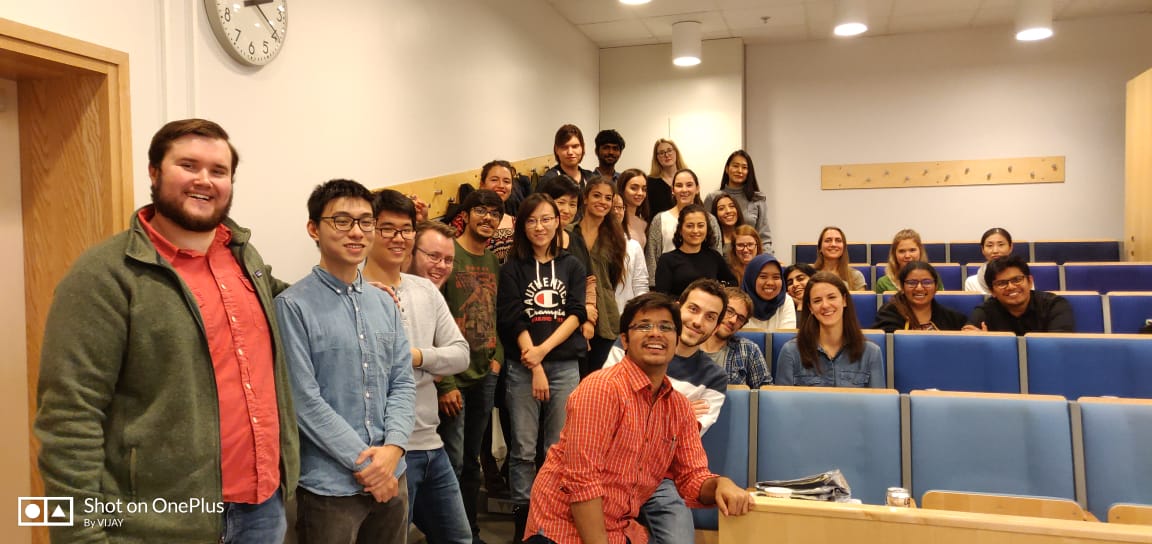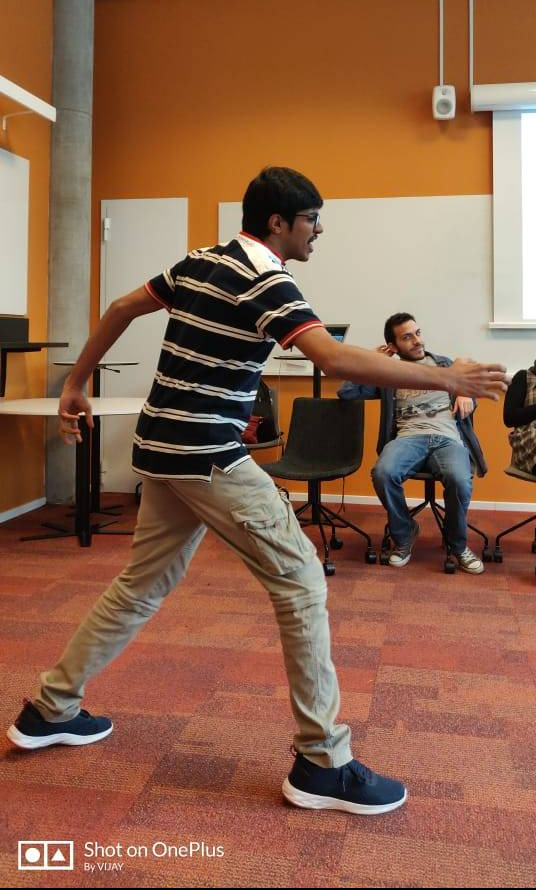
Molecular Techniques in Life Science Course Review: Genetics
Hej hej! Now that more than half of the semester has finished, I have a clearer idea about what the Master Programme in Molecular Techniques in Life Science (MTLS) is about. In this post I will sum up our first two courses: Genetics and Applied Communication. From genetics to poetry, during the first part of MTLS semester 1 we acquired basic knowledge that will be very useful in our careers.
It all started with genetics
The first course we had was genetics, which aimed to review some important concepts and set some common ground for the students who didn’t do a biology-related bachelor.
The MTLS program is very focused in high throughput techniques and biological big data, and so did this course! We learned how Next Generation Sequencing techniques can be used in the diagnosis of genetic diseases and why is it important to have a deep understanding of the genetic processes explaining the inheritance of disease.
The best: We had a practical session in which we were put in a real-life situation: given some data from DNA sequencing we had to identify the variants that were causing the disease of two patients. It was really cool to see how all that we learned in class is applied in research.

Group picture of us after a Seminar Series we did in the Genetics course. Divided in teams, we had to present a paper in genetics as if we were at a genetics congress; we also enjoyed fika!
Tip for future students: The course is fast-paced, so make sure you keep up with the daily readings. That will help you study for the final exam 🙂
Why do a scientific presentation when you can recite a poem
Another course we had this semester was Applied Communication, which covered four very important aspects of scientific education: poster presentation, scientific writing, rhetorics and bioethics.
Part I – Poster Presentation: for the first part of this course we were divided in teams to do a poster about a scientific paper. All of the papers we could choose from were related to bioinformatics and analysis of -omics data. My group chose a paper about genomic regulation in prostate cancer. I found it challenging to sum up all the relevant information in the paper in the poster, but I learned a lot from it!
Part II – Scientific Writing: during this second block we discussed how to write academic texts, including papers and thesis, and we had to write an abstract about a paper by ourselves to get some practice.
Part III – Bioethics: another very important part of scientific education is ethics. We touched and discussed several topics related to this: biobanking, screening, public health and other general concepts in ethics. I really liked the group discussions of the cases the professor gave us, it was very interesting to listen to each other’s opinions and discuss about them.
Part IV – Rhetorics: this was my favourite part of the course, and mostly because it was completely surprising and fun at the same time. We had a full week dedicated to rhetorics, and it all started with a theater class! That first day we focused on body language and we had to prepare a poem to recite in class. For the second part we had the pleasure to meet Peter Lind, a professor in rhetorics. His classes focused on how to give a good scientific presentation: presentation structure, tips for making the perfect slides and how to organize your speech in time. I think we learned many things about him, and there has been a big improvement in all of us after we attended his classes.

My classmate Kavan Gor while reciting his poem. Photo by: Vijay Josyula
I hope these course review have helped you to know a bit more what classes in MTLS are like, for any questions email me: ines.rivero.garcia@stud.ki.se
/Ines
Email: ines.rivero.garcia@stud.ki.se
IG: @inesriverog
LinkedIn: Ines Rivero Garcia

1 comments